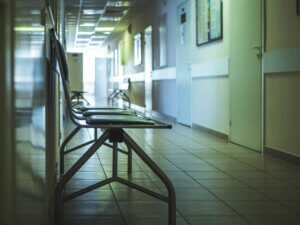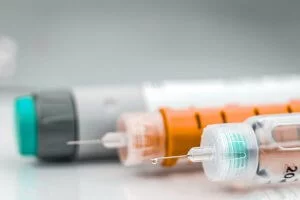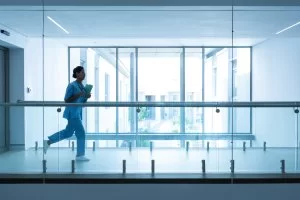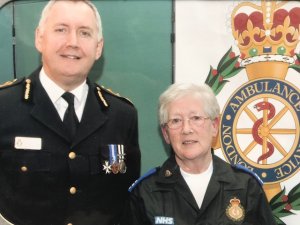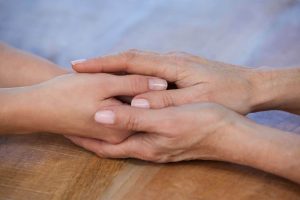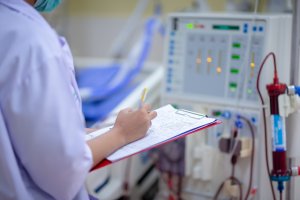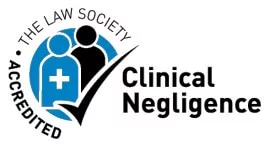Fatal Medical Negligence Claims
Claim Compensation for Fatal Medical Negligence
If a family member dies as a result of negligent medical care, our expert solicitors can guide you compassionately through the process of Claiming Compensation for Fatal Medical Negligence
“Small but very effective and experienced team so every client benefits from the personal touch but also highly skilled litigation know-how. Capability of the team means they can handle all aspects of very complex cases as well as straightforward matters.”
“Osbornes Law is an established firm which handles a breadth of complex and high-value clinical negligence matters.”
Fatal medical negligence claims are among the most serious cases in medical malpractice law. These claims arise when a patient dies due to substandard medical care. Understanding the complexities of death by medical negligence is crucial for families seeking justice and compensation for their loss.
Expert support for medical negligence death compensation
This page will help you understand what your options are and answer many of your questions. You will learn more about our experience in fatal medical negligence claims, and what you can expect from our lawyers. Finally, you can find out how we have helped other families achieve high-value compensation awards following a death by medical negligence.
Table of Contents
What are fatal medical negligence claims?
Death by medical negligence can occur in various healthcare settings, including hospitals and care homes. Common scenarios involve surgical errors, misdiagnosis of life-threatening conditions, and medication mistakes. Each case of fatal medical negligence necessitates a thorough investigation to establish the connection between the healthcare provider’s actions and the patient’s death.
If a clinician makes a mistake and the patient dies as a result, the family of the deceased may be able to make a claim for compensation. The test is whether the medical professional failed in their duty of care to the patient. Usually, this means the clinician has gone against standard operating procedures, practices and advice.
Common medical negligence death cases
Common medical negligence death cases include:
- Errors made in surgery that could have been prevented if something had been done differently
- Surgery that took place when it wasn’t actually required
- Delayed diagnosis so the condition was no longer treatable
- Misdiagnosis of a condition which meant the real condition wasn’t treated
- Negligent care in a hospital or care facility
- Medication errors where the patient was given incorrect medication that caused their death
- Childbirth errors which lead to the death of the mother or baby
A medical death in any scenario will usually open up the possibility of a compensation claim. Please call us as soon as you are able to discuss your situation.
Who can bring a fatal medical negligence claim?
In theory, any close family member who suffers as a result of the death can claim for medical negligence compensation. However, it is usually the children, spouse or civil partner of the deceased who will bring the claim. Dependents who relied on the deceased for financial support can claim for the financial losses they suffer as a result of their loved one’s death.
Are there any time limits to bringing a fatal medical negligence claim?
In most cases, you must start your fatal injuries compensation claim within three years of the date of the negligent medical treatment. If you do not immediately link the death to the actions of medical staff, then the three-year time limit will start to run on the date you learn about the medical mistake.
With any medical negligence claim, it’s important to seek legal advice as soon as possible. This will give us plenty of time to take some early steps, such as making a complaint to the NHS or medical practitioner concerned. Medical professionals are bound by what is called the ‘duty of candour.’ This means they must be open when things go wrong and apologise, which can be used to secure an early admission of liability.
How much compensation for medical negligence resulting in death?
Receiving compensation will not bring your loved one back, but it can help protect you against the financial consequences of their death. We work out how much compensation you will get based on a number of things including:
- Loss of your loved one’s salary and benefits
- The pain and suffering your loved one may have experienced before death
- Funeral costs
- Medical expenses
Everyone’s situation is different. With over 40 years of experience in negotiating fatal medical negligence claims, we’ll make sure your compensation covers your needs so your family will be financially secure in the future.
What happens at a coroner’s inquest?
When someone dies, a doctor will issue a certificate stating the cause of death. In some rare cases, however, a coroner may launch an inquest into the circumstances of the death. This might happen if the death occurred during surgery, or the death had no explainable cause. The purpose of the inquest is to find out why and how the person died.
For relatives of the deceased, a coroner’s inquest is often a highly emotional experience. Taking a legal representative to the hearing will ensure that the right questions are asked so you get the answers you are looking for. This will help you come to terms with what happened, and it can also help to gather important information regarding a potential medical negligence claim.
In some circumstances, a coroner is able to make factual findings of failures in the care or treatment of your loved one. These findings can be helpful if a family chooses to pursue a claim for compensation.
What legal support is available after death by medical negligence?
There are two key pieces of legislation that govern the support available to bereaved families:
The Law Reform Act allows the deceased’s estate to claim for pain and suffering, loss of income, funeral expenses, and services like nursing care. The Fatal Accidents Act enables dependents to claim for financial losses, bereavement damages (fixed at £15,120), funeral expenses paid by the dependents, and loss of consortium. A dependent broadly, including spouses, civil partners, long-term cohabitants, parents, children, and others who were financially reliant on the deceased. Dependents must demonstrate the likelihood or reality of financial loss due to the death. Additionally, bereaved families can claim Bereavement Support Payment.
Find out more about the legal support available to bereaved families here.
Why choose Osbornes as your fatal negligence solicitor?
Specialist medical knowledge and understanding
By choosing Osbornes Law, you will have a professional and understanding team in your corner that will work tirelessly to help you get the answers and compensation you are looking for. Our team has extensive experience and knowledge of NHS procedures, medical terminology, and the ability to identify inconsistencies in medical records. This expertise allows us to effectively navigate complex medical negligence cases and provide comprehensive support to our clients. Our specialist solicitors are also members of the Action Against Medical Accidents and the Law Society’s panel for medical negligence solicitors.
You only have one opportunity to make a claim so it is vital that you get the very best representation.
Osbornes Law is recognised as one of the top firms in the medical negligence field. Many of the families we help want answers, and they want to stop similar tragedies from happening to other people. We can guide you through the official complaints process, as well as handle your compensation claim.
When you contact Osbornes Law, our specialist medical negligence solicitors will assess your claim and tell you whether you have a medical negligence claim. We will advise you on what happens next and the timeline of your claim. All of this is done on a no-win no fee basis, meaning you have no financial risk.
Speak to us about a fatal clinical negligence claim
Call us 020 7485 8811
Email us Send us an email and we’ll get back to you
Osbornes are always professional and diligent in respect of their clients.
Osbornes has an excellent depth of experience across the team.
Across the board, they are all a pleasure to work with. They always keep a pragmatic head and all have an eye on the best outcome for the client.
Small but very effective and experienced team so every client benefits from the personal touch but also highly skilled litigation know-how. Capability of the team means they can handle all aspects of very complex cases as well as straightforward matters.
‘They are ambitious for their clients and expect high standards from all who work with them.’
"Osbornes somehow combine the accessibility of a local firm, with the professional standards of a national or city outfit."
"Osbornes, is described as having ‘superb judgement and a medical knowledge that is second to none."
They are an excellent firm who achieve fantastic outcomes for their clients. They are also very prominent in injuries to those travelling to or from Europe. Multiple languages are spoken by the team.
Stephanie Prior is a first-rate clinical negligence specialist whose industry, great experience and medical background put her in an exceptional class.
This firm is responsive and efficient. Their rapidity in dealing with complications or hiccups is excellent.
Really great clinical negligence practice, staffed by experienced practitioners who know how NHS Trusts work. They also build great rapport with clients.’
Osbornes provides a very intimate and personal client service which is increasingly rare in this sector.
The lawyers in the team are highly experienced and will drive cases very hard on behalf of their clients.
News and Insights of Fatal Claims VIEW ALL
- 29.4.2025
Five-Figure Settlement in Fatal Medical Negligence Case
Osbornes Law secures a five-figure compensation following a fatal medical negligence claim Osbornes acted for our client, E, who brought...
Read more - 30.4.2024
Settlement In Neonatal Death Case
Settlement in fatal medical negligence case against King’s College Hospital Nick Leahy, Associate in our Clinical Negligence department, recently...
Read more - 8.4.2024
Epilepsy Negligence Compensation Claim
Nicholas Leahy, an Associate in the Clinical Negligence team at Osbornes Law, has recently settled a long-running fatal medical negligence...
Read more - 1.8.2023
Bowel Ischaemia Fatality – Client Story
Jodi Newton, a Partner in the Clinical Negligence Department at Osbornes Law, has recently settled a long running fatal medical...
Read more - 13.1.2023
Delayed diagnosis of appendiceal cancer
The medical negligence team at Osbornes Law has recently settled a case involving a patient who passed away following a...
Read more - 14.7.2022
Insulin overdose in hospitals due to limited staff...
A century ago, insulin was first used to treat a 14-year-old boy dying of type 1 diabetes. A hundred years later,...
Read more - 31.1.2022
Recent fatal medical negligence cases
Osbornes Law specialises in helping families who have suffered a fatality due to inadequate medical care. Our specialist team has...
Read more - 20.9.2021
Osbornes Law Represents Family in Fatal Medical Negligence...
Negligent Hospital Care Leads to Tragic Death Osbornes Law is representing the family of a former NHS employee who suffered...
Read more - 9.7.2021
Legal Support For Bereaved Families
What legal support is available for bereaved families? The loss of a loved one is an extremely distressing time for...
Read more - 8.7.2021
Failure to prescribe anti-coagulant medication proves fatal
Executor of the Estate of DS and another v James Paget University Hospitals NHS Foundation Trust The Clinical Negligence team...
Read more - 18.5.2021
Fatality of child caused by incorrect diagnosis
KRB was born in 2000 and was a patient at Whipp’s Cross Hospital. In the Autumn of 2014 he was feeling...
Read more - 13.10.2020
Parental Bereavement Leave & Pay
What is Parental Bereavement Leave and Pay? Parental Bereavement Leave and Pay is something that many parents will not be...
Read more - 13.11.2019
Fatal Claim against West London NHS Trust
Claim Against West London NHS Trust Case Overview I recently acted in a fatal medical negligence claim against West London...
Read more






